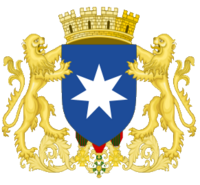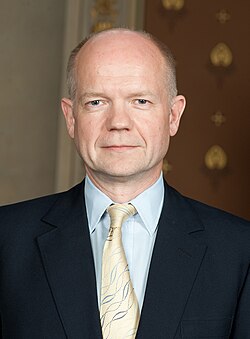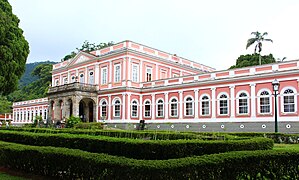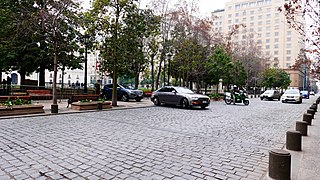President of Soltenia
| President of the United Republics | |
|---|---|
| Presidente delle Repubbliche Unite | |
 Presidential Coat of Arms | |
 Presidential Flag | |
| Style | His Excellency |
| Member of | Cabinet United Defense Council United Economic Council Presidential Policy Council |
| Residence | Port House |
| Seat | Carez |
| Appointer | United Delegations |
| Term length | 6 years renewable once |
| Constituting instrument | Soltenish Constitution |
| Formation | 17 March, 1971 (as provisional president) 29 June, 1977 (under the United Republics) |
| Deputy | Chief Minister |
| Salary | 276,000 bronzellas per year |
The President of Soltenia (High Soltenish: Presidente di Soltenia), officially the President of the United Republics (High Soltenish: Presidente delle Repubbliche Unite) is the head of state and head of government of Soltenia. The president leads the executive branch of the federal government and is the commander-in-chief of the Soltenish Armed Forces.
For much of its democratic history Soltenia has resembled a parliamentary system. However, the presidential system was established in 1971, upon the proclamation of general and commander-in-chief of antigovernment rebels, Giorgio Cittàgrano, as provisional president of the Soltenish state during the Soltenish Civil War. The office was established as an official constitutional post in the 1977 constitution. The Constitution of Soltenia, along with several constitutional amendments, establishes the requirements, powers, and responsibilities of the president, their term of office and the method of election. The president serves a six year term, renewable once.
Aurelio Di Gorlana is the 8th and current president. He was sworn in on 31 July 2019.
Constitutional Powers
As a republic with a presidential executive, Soltenia grants significant powers to the president, who effectively controls the executive branch, represents the country abroad, and appoints the cabinet and, with the approval of the Senate, the judges for the High Court. The president is also the commander-in-chief of the armed forces.
Presidents in Soltenia have significant lawmaking powers, exercised either by proposing laws to the Senate or by using executive decrees, an instrument with the force of law that the president can enact in cases of urgency and necessity except to make changes to some areas of law (provisional measures cannot conflict with current law and expire after 50 days). A provisional measure comes into effect immediately, before the Senate votes on it, and remains in force for up to 50 days unless the Senate votes to rescind it. The 50-day period can be extended once by another 50 days. If the Senate, on the other hand, votes to approve the provisional measure, it becomes an actual law, with changes decided by the legislative branch. The provisional measure expires at the end of the 50-day period (or the 100-day, in the case of extension), or sooner, if rejected by either the Senate or is struck down by the High Court.
The current Constitution of Soltenia determines that the president has the power to
- appoint and dismiss the ministers of state;
- exercise, with the assistance of the ministers of state, the higher management of the federal administration;
- initiate the legislative procedure, in the manner and in the cases set forth in the Constitution;
- sanction, promulgate, and order the publication of laws, as well as issue decrees and regulations for the true enforcement thereof;
- veto bills, wholly or in part;
- provide, by means of decree, on organization and structure of federal administration if there is neither increase of expenses nor creation or extinction of public agencies; and extinction of offices or positions, when vacant;
- maintain relations with foreign States and to accredit their diplomatic representatives;
- conclude international treaties, conventions and acts, subject to the ratification of the Senate;
- decree the state of defense and the state of siege, in accordance with the constitutional procedures that precede and authorize those emergency decrees;
- decree and enforce federal intervention, in accordance with the constitutional procedures that precede and authorize such exceptional action;
- upon the opening of the legislative session, send a government message and plan to the Senate, describing the state of the nation and requesting the actions he deems necessary;
- at least once a year the president must hold a conclave of representatives for the republics, send a government message and plan to them, and seek their support for actions he deems necessary;
- grant pardons and reduce sentences, after hearing the entities instituted by law, if necessary;
- exercise the supreme command of the armed forces, appoint the commanders of navy, army and air force, promote general officers and to appoint them to the offices held exclusively by them;
- appoint, after approval by the Senate, the Justices of the High Court and those of the superior courts, the Governors of the territories, the Prosecutor General of the United Republics, the president and the directors of the Central Bank and other civil servants, when established by law;
- appoint judges in the events established by this constitution and the Attorney General of the Union;
- award decorations and honorary distinctions;
- permit, in the cases set forth by supplementary law, foreign forces to pass through the national territory, or to remain temporarily therein;
- submit to the Senate the pluriannual plan, the bill of budgetary directives and the budget proposals set forth in this constitution;
- render, each year, accounts to the Senate concerning the previous fiscal year, within sixty days of the opening of the legislative session;
- fill and abolish federal government positions, as set forth by law;
- issue provisional measures, with force of law;
- perform other duties set forth in the constitution.
Election
The Constitution of Soltenia requires that a president be a citizen of Soltenia, at least 30 years of age but no more than 70 in the year of their inauguration for their first term (though presidents older than 70 may run for reelection) a resident of Soltenia, in full exercise of their electoral rights, and a registered voter. In addition, presidents may not be elected as residents from the republic of their immediate predecessor, and their chief ministers (who becomes president in the event of his death) must be from a different republic than the president.
The president of Soltenia serves for a term of six years, limited to being re-elected once. If a person serves more than three years and 364 days of a term begun by another person then that shall count as a full term. A sitting president (or executive of a republic, governor of a territory, or as mayor) who wishes to run for a different office, regardless of the intended jurisdiction or branch of government, must resign from office at least six months before election day.
Compensation and Privileges
As of 2023, the president receives a monthly salary of ฿23,000 (฿276,000 a year), equivalent to ₳33,333.33 a month (₳400,000 a year), along with an expense account to cover travel for official business and other goods and services related to the functioning of the executive branch. This means that travel to and from the presidential vacation homes is not covered by the expense account unless it relates to official business.
The Port House in Carez is the official resident and workplace of the president. The president also has secondary workplaces and residences in various parts of Soltenia. The president is entitled to the use of the Senate House in Erix, the historic (though now mostly ceremonial) residence of the Secretary of the Senate. There is also the Casa Estada on the northeastern coast of Alamarence, which often serves as a summer retreat. Finally, the Casa dal Guvernatur (the historic residence of the governors of the Suregni Islands before they aceded to full republic status) is officially a home used by the president, though it often is used for official events, such as the hosting of foreign dignitaries.
In the 2000s, the federal government decided to establish Regional Offices of the Presidency of the Republic in certain key cities. Those regional offices are not presidential residences, but they are fully staffed offices ready to receive the president and his ministers at any time, and they function as a presidential workplace when the president is in those cities. The first regional office of the presidency was established in the city of Gorlan, Soltenia, and is located in the basement of the Fernerlander presidential residence. Other key cities include Felere, Potletsa, and Queenstown.
For ground travel, the president is entitled to the use of a presidential state car, which is usually an armored version of a luxury sedan. A modified luxury transport aircraft is often used a presidential aircrat, though longer journeys may require the government to charter a commercial flight or use a modified military cargo aircraft instead. A helicopter, traditionally operated by the local republic's air militia, is also used.
After the end of their term in office, presidents (and those who served as acting president for more than one year) are entitled to a half pension of ฿11,500 (฿138,000 a year), equivalent to ₳16,666.67 a month (₳200,000 a year), access to presidential vehicles with the permission of the incumbent, access to presidential property with the permission of the incumbent, and are made honorary members of the Senate, who have no voting rights but are allowed to attend meetings and speak to the Senate as a whole.
- Presidential Amenities
Presidential residence, the Port House in Carez
Presidential second home, the Senate House in Erix
Presidential vacation home, Casa Estada
Presidential vacation home, the Casa dal Guvernatur in the Suregni Islands
Presidential jet, a NI820
Presidential helicopter, usually an SO901 (this one operated by the Almarentine Air Guard)

Vacancies and Succession
According to the Soltenish constitution, the chief minister becomes the president in the event of the president's death, resignation, or removal. Both death and removal have only occurred once each, in 1994 and 2000.
In the event of a double vacancy of both the president and the chief minister, the Senate may declare, by law, who shall assume the status of acting president. Per current Soltenish law, in the event of a vacancy of both the president and the chief minister, the order of succession is: the secretary of the Senate, then, if necessary, the chair of the High Court, and then, if necessary, the the minister of foreign affairs. Unlike a single vacancy, where the chief minister becomes president, those who ascend to the presidency in the event of a double vacancy are only acting presidents, who hold the powers and duties of the office without assuming the office itself.
Acting presidents hold their office according to two criteria: duration of their tenure and status of the president. If the president is only temporarily unable to serve (such as a severe illness or injury that will be resolved within 6 months), either the Cabinet or the Senate has the power to declare the incapacitation temporary and the acting president will only exercise power until the president is able to resume their duties of office. In the event that the incapacitation is expected to last longer than 6 months or the office of the president is vacant due to death, removal, or resignation, then the acting presidency will serve until the end of the term unless there is more than 600 days remaining in the term, in which case a new election shall be held with the winner serving a full six year term.
Removal
The president may be removed from office using one of four procedures. During removal proceedings, the president is suspended from exercising the functions of office for up to 180 days. In the first two procedures to remove a president, at least three fifths of the Senate must accept charges against the officeholder (impeachment); and if the Senate accepts the investigation, a trial will be held. In the case of "common criminal offenses", the trial takes place among all the justices of the High Court, with at least three fifths (currently 27 justices) needed to convict and remove the president. In the case of "crimes of a serious nature", which must fall into one of eight broad areas, defined by law, the Senate will be the jury and a two thirds vote will be required to convict:
- The existence of the United Republics
- The sovereignty of a constituent republic
- The free exercise of the Legislative Power, the Judicial Power, the Public Prosecution and the constitutional Powers of the units of the United Republics
- The exercise of political, individual and social rights
- The internal security of the country
- Probity in the administration
- The budgetary law
- Compliance with the laws and with court decisions
The latter two procedures do not begin in the Senate. Instead, if three fifths of the constituent republics (currently 11 of 17) declare that the president committed a crime of a serious nature, the Senate is instead forced to accept the charges regardless and hold a trial. In addition, the threshold is lowered to 55% of senators, rather than two thirds majority. The fourth and final procedure is identical to the previous one, but if the decision of the constituent republics is near-unanimous (currently defined as 15 of 17 republics agreeing) the president is removed from office immediately.
Regardless of the procedure to reach trial, during any trial for crimes of a serious nature the chief minister exercises executive power. If the trial does not result in a conviction within 180 days, the president resumes office; a conviction results in removal from office and succession by the chief minister. If there is no chief minister, the most senior officer of the Senate, usually the secretary, will act as president until the next election. An emergency election will be held if the next election is more than 2 years away, otherwise the acting president will serve out the rest of the term.
Only one president, Olaf Berolder, has ever been removed from office. Berolder was removed due to the Conservative Union vote-buying scandal where it emerged that Berolder had bribed members of the Conservative Union's national convention in order to secure votes for a proposed constitutional amendment, with the bribes being paid from federal funds. The scandal resulted in 12 republics declaring that Berolder had committed a crime of a serious nature, the Senate was forced to accept charges, and the 55% threshold was reached. As Berolder's chief minister, Hipolito Getterez, had resigned due to a stroke and was never replaced, Secretary of the Senate Girardino DaCareza was sworn in as acting president for the last 18 months of Berolder's term.
The Senate may, after a senatorial election has passed, remove a president's rights to his pension and other benefits if he was removed from office by either the Senate or constituent republics.
List of Presidents
Political Parties:
Independent Conservative Union Confederal United Left Confederal Union
| Portrait | General Secretary (Birth–Death) |
Term | Party | Republic | Notes | ||
|---|---|---|---|---|---|---|---|
| 1 | 
|
Giorgio Cittàgrano (1914–2003) |
29 April 1971 |
3 August 1977 |
Independent | Almarence | Cittàgrano, commander-in-chief of the pro-democracy forces during the civil war, would be elected as provisional president. While not holding the office as established by the constitution, his successors would recognize him as the first president of Soltenia. Cittàgrano intiated several reforms for the provisional government, establishing an independent civil service, implementing a new curency, fighting the ongoing insurgency in the interior, and amnesty for lower level offenders from the communist regime. Despite his wide popularity, Cittàgrano refused to run in the 1977 election, citing poor health (Cittàgrano had had a stroke in December of 1976). |
| 6 years and 96 days | |||||||
| 2 | 
|
Ezio Faraghi (1913–1992) |
3 August 1977 |
1 August 1983 |
Conservative Union | Colpi | The first elected president under the modern constitution, Faraghi ran as a more libertarian candidate and oversaw an expansion of the power of the constituent republics at the expense of the central government and demilitarization due to a perceived winding down of insurgent conflicts in the deep interior. However, despite high economic growth in 1977-1982, a large increase in the monetary supply and several price shocks led to a period of hyperinflation, with the Soltenish nuovo credito reaching 76.2% monthly inflation in June of 1983. Public confidence in Faraghi dropped and he lost the 1983 election in a landslide to Raimundo Erixani. |
| 5 years and 363 days | |||||||
| 3 | 
|
Raimundo Erixani (1924–1994) |
1 August 1983 |
27 January 1994 |
Confederal | Soleria | A dark horse candidate for the presidency, Erixani's Piana Bronzella campaign promise led to him winning the 1983 elections in a landslide. After being able to stabilize the currency, capital in flows and investments into the Soltenish economy increased, leading to high economic growth and stabilization of prices as inflation slowed. Erixani was reelected in 1989 by slimmer but still comfortable margin. However, Erixani suffered a stroke in January 1994. Despite not dying initially, Erixani was left unresponsive for six days until he died on 27 January. His chief minister, Carlo Alfazzi, asssumed the presidency. |
| 10 years and 179 days | |||||||
| 4 | 
|
Carlo Alfazzi (1951–) |
27 January 1994 |
2 August 1995 |
Confederal | Sacro Cuore | Taking over the presidency after the death of Erixani's death, Alfazzi had been chief minister for Erixani for most of his second term. Coming from the more right-wing faction of the Confederal Party, Alfazzi pulled the Confederalists to the right, ultimately setting the stage for the second party system. |
| 1 year and 187 days | |||||||
| 5 | 
|
Olaf Berolder (1945–) |
2 August 1995 |
18 January 2000 |
Conservative Union | Fernerland | The first Fernerlander elected president, Berolder won a narrow victory over the personally unpopular Alfazzi, whose party had begun to splinter across its left and right wings. Berolder's term was marked by a nationwide scandal where several members of the Conservative Union's leadership, chief among them being Berolder himself, were found to have bribed party members in exchange for support in the Senate. This resulted in Berolder having charges brought to him by 13 of Soltenia's republics. The resulting trial in the Senate found him guilty, and Berolder was removed from office. |
| 4 years and 169 days | |||||||
| - | 
|
Girardino DaCareza (1942–2023) |
18 January 2000 |
1 August 2001 |
Republican As a part of United Left |
Almarence | Because of the removal of Berolder for his part in a vote-buying scandal and the resignation of Chief Minister Hipolito Getterez in March of 1999, the presidency was left vacant. As the incumbent Secretary of the Senate, DaCareza was appointed acting president. With the next election less than two years away, DaCareza would serve until the end of the presidential term, and the term would not count as a full term for him. During these 18 months, DaCareza served primarily as a caretaker role, though he would win the presidency in his own right in 2001. |
| 1 year and 195 days Acting | |||||||
| 6 | 
|
Girardino DaCareza (1942–2023) |
1 August 2001 |
31 July 2013 |
Republican As a part of United Left |
Almarence | With the Confederal Party split into its left and right wings, DaCareza was able to absorb the Confederal leftist faction into a broad coalition called the Republican Party, which would partially merge with fledgling Social Democratic Party to form the United Left. His term was marked by continued economic growth and anti-corruption reforms. DaCareza was widely popular, and won by a close margin in the three-way election of 2001 and by a landslide in 2007. |
| 11 years and 364 days | |||||||
| 7 | 
|
Mateo Benzi (1953–) |
31 July 2013 |
31 July 2019 |
Social Democratic As a part of United Left |
San Michele | As economics minister from 2003-2012, Benzi was considered a major part of the DaCareza administration's economi policies, and received praise for his conduct during his tenure. Benzi won a close but comfortable election in 2013. However, his term saw the beginnings of a major recession, an increase in crime, and secessionist violence due to the unpopularity of the Centralization Act led to Benzi losing his reelection bid to Aurelio Di Gorlana, the first time time the presidency was not held by the United Left since 2001. |
| 6 years and 0 days | |||||||
| 8 | 
|
Aurelio Di Biviu (1964–) |
31 July 2019 |
Incumbent | Confederal Union | Colpi | The incumbent president, Di Biviu has previously served as President of Colpi and ran a populist anti-crime and anti-corruption campaign, including the 2022 corruption cases and ongoing 2024 anti-crime crackdowns. His administration has been criticized for authoritarian rhetoric and opposition to some constitutional norms. |
| 4 years and 279 days | |||||||







